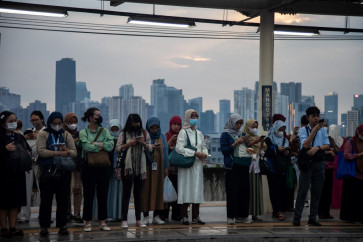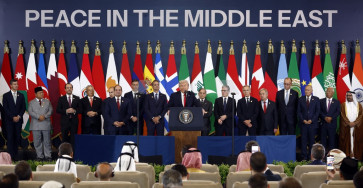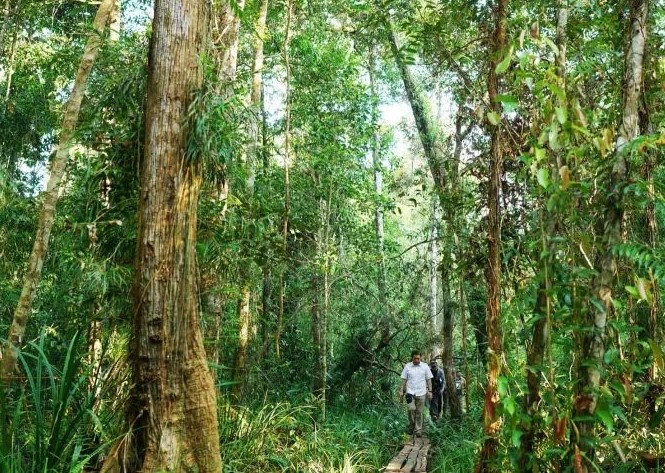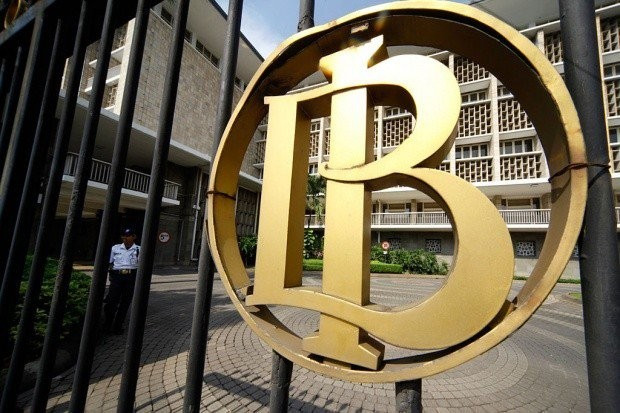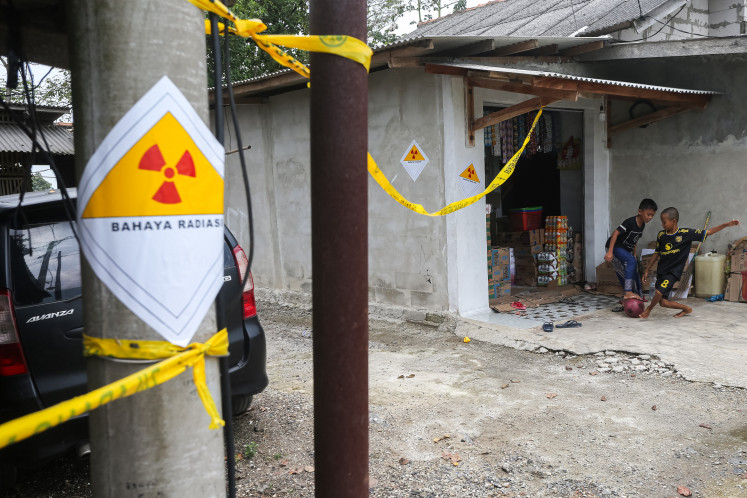Popular Reads
Top Results
Can't find what you're looking for?
View all search resultsPopular Reads
Top Results
Can't find what you're looking for?
View all search resultsRevisiting Indo-Oz defense treaty sans mutual trust
The agreement on the code of conduct on surveillance signed by Indonesia and Australia marks the resumption of full normal ties between the two countries that drifted apart after revelations in November that Canberra had been tapping the phone of President Susilo Bambang Yudhoyono, his wife and a number of top Cabinet ministers
Change text size
Gift Premium Articles
to Anyone
T
he agreement on the code of conduct on surveillance signed by Indonesia and Australia marks the resumption of full normal ties between the two countries that drifted apart after revelations in November that Canberra had been tapping the phone of President Susilo Bambang Yudhoyono, his wife and a number of top Cabinet ministers.
The agreement, signed by the countries' respective foreign ministers Marty Natalegawa and Julie Bishop in Bali on Aug. 28, should lead to the restoration of all security and defense cooperation programs that Yudhoyono revoked when he downgraded bilateral ties.
But nice diplomatic parlance aside, there is one thing that neither side can restore immediately, if ever: mutual trust.
An essential ingredient in any relationship, Australia's belligerent attitude in the wake of the espionage scandal made sure that whatever trust the two governments had painfully built over the years went out of the window.
The agreement was hastily pushed by both sides, without looking deeper into the implications the spy revelation had on bilateral ties, presumably to provide Yudhoyono with a respectable exit as he leaves office in October.
After all, he had invested his personal reputation in strengthening bilateral relations more than any Indonesian president had ever done. If he felt deeply betrayed by his Australian friends, this agreement probably soothed his feelings a little.
But the message from Canberra is loud and clear: Australia has no intention of stopping the espionage activities on Indonesia. It never has, even from the beginning when the espionage activities were first disclosed by the Snowden files. The code of conduct signed in Bali flies in the face of Indonesia's good neighbor foreign policy.
It took Australian Prime Minister Tony Abbott all this time to agree to sign this agreement and, even then, Canberra insisted on calling it a 'joint understanding'; hence the wordy official title: The Joint
Understanding on a Code of Conduct between the Republic of Indonesia and Australia in implementation of the agreement between
the Republic of Indonesia and Australia on the Framework for Security Cooperation.
The code of conduct, or joint understanding, is supplementary to the existing umbrella defense and security cooperation agreement the two governments signed in 2006, known as the Lombok Treaty ' so named after the Indonesian island where it was signed.
Can the Lombok Treaty seriously be retained given the loss of mutual trust that had pinned their relationship on defense and security cooperation?
With the Yudhoyono factor out of the picture, incoming Indonesian president Joko 'Jokowi' Widodo would do well to review this aspect of the relationship with Australia.
A recent Reuters item from Sydney reported that Abbott is pursuing 'a muscular foreign policy that has moved him closer to the United States on crises like Iraq and Ukraine, but has some worried over the risk of alienating China.' In pursuing relations with its southern neighbor, Indonesia should not allow itself to be dragged into a position that contradicts its active and independent foreign policy, which historically has been its principled position.
Now Indonesia knows better that Australian intelligence operates independently from the administration's declared foreign policy.
Next time an Australian prime minister states that 'no country is more important to Australia than Indonesia', echoed first by Paul Keating in 1994 and repeated by all his successors since, including Abbott, we should take it with a grain of salt. As far as their intelligence operation is concerned, Indonesia is still treated as a potential enemy and a threat to Australia's security.
The fact of the matter is that when it comes to intelligence operations, Australia is beholden to the masters in Washington through a complex web of alliance treaties dating back to the Cold War era. Then prime minister John Howard was revealing Canberra's true identity when he described Australia as 'America's deputy sheriff' in 2004.
The Lombok Treaty may not have to be abrogated, but we need to send it back to the drawing board to allow Indonesia's foreign and defense officials to review and adjust to the real Australia we have come to know now.
With little or no mutual trust, relations in defense and security should be pragmatic at best, if not strictly businesslike: We should ask what Indonesia can get out of it, in the same way that Australia will be asking what it can get out of Indonesia.
Indonesia and Australia should continue to forge all other aspects of their relationship, from trade and investment, education and cultural exchanges, scientific research, to tourism, civil aviation, meteorology and others not related to security and defense.
Some security cooperation such as fighting the drug trade and counter-terrorism can continue, but all others will have to be frozen, terminated or scaled down.
We should be cautious about any suggestion to elevate relations up a notch to a 'comprehensive partnership'. Comprehensive partners do not spy on each other. Given the close linkages between Australia and US intelligence agencies, clearly Indonesia and Australia have different strategic outlooks.
More specifically, we recommend that the periodic meeting between the heads of government be scrapped, as they can always meet on the sidelines of international summits like APEC, G-20 and the East Asia Summit. The joint meetings of foreign and defense ministers should also be postponed. They can meet when the need calls.
Indonesia should review the many joint strategic cooperation programs since the countries do not necessarily share the same interests.
On the perceptions of the China threat, the people-smuggling problem and the spread of radical Islamic ideology, the overlapping areas of common interests are not as large as many assume. Cooperation in these areas should be limited to where Indonesia really benefits from it.
Australia is coming up with a new 2015 defense white paper, while Indonesia has long passed the 2013 deadline to publish its own defense white paper.
These documents will outline their respective threat perceptions. In addition, Jokowi will likely want to implement his foreign policy vision of Indonesia as an 'Indo-Pacific' axis of power, and a maritime power, which is a major departure from current policy.
Indonesia, with a long coastline facing the Indian Ocean, will cooperate with Australia and other littoral states within the framework of the Indian Ocean Rim Countries Organization to establish a cooperative regime.
All these developments as well as the changing nature of the relationship should be taken into account as Indonesia reviews its defense and security ties with Australia.
Australia will continue to be an important neighbor for Indonesia by geographical definition, although now less so in terms of shared geopolitical interests.
If Australia regards Indonesia as a potential enemy, Indonesia too should consider Australia as a potentially hostile neighbor.
As far as defense and security cooperation, relations beyond this point and for the foreseeable future should be kept cordial in the absence of mutual trust.
That probably works in the best interests of the two nations as long as Australia is not quite ready to conduct an independent and active foreign policy befitting a sovereign nation.
________________
The writers are senior editors at The Jakarta Post. Siagian served as Indonesia's ambassador to Australia in 1991-1994.


